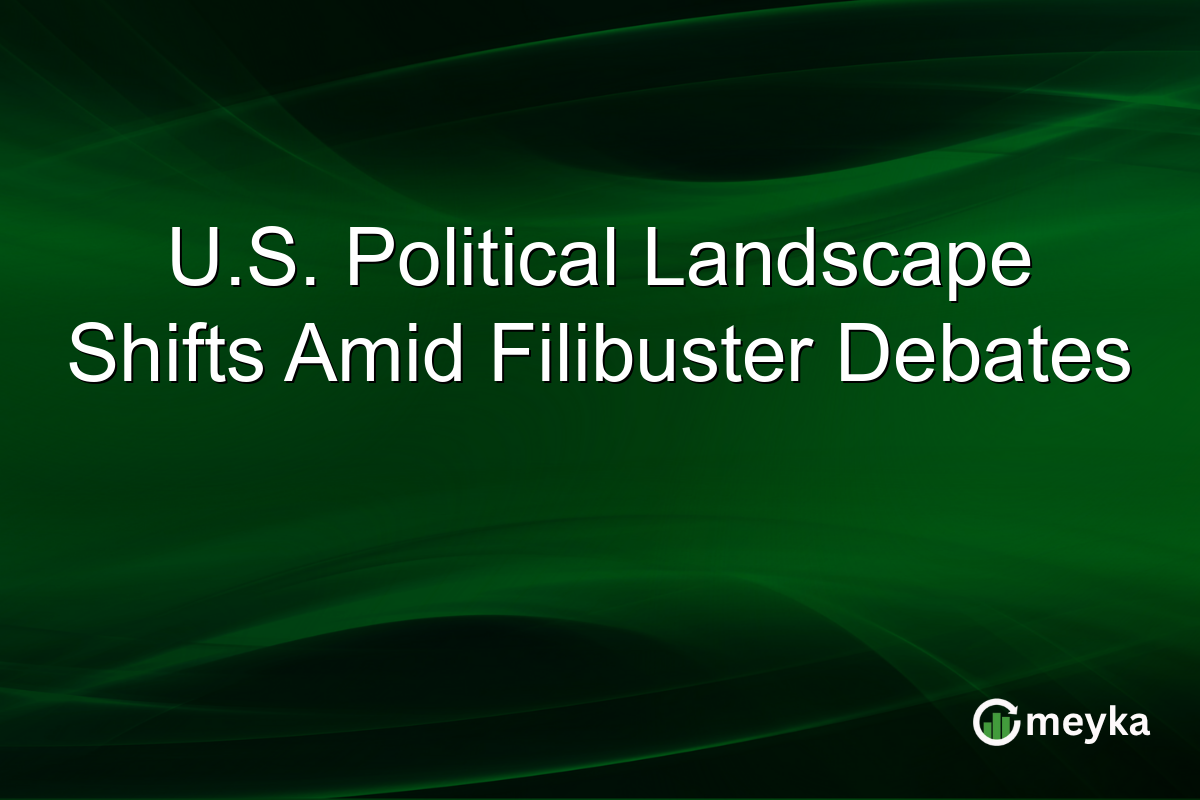U.S. Political Landscape Shifts Amid Filibuster Debates
The U.S. political landscape is undergoing significant changes, with recent discussions around the filibuster gaining traction. Following Democratic victories in state elections, these filibuster debates have intensified, especially as Trump vocalizes support for its removal. This debate is pivotal to ongoing Senate negotiations, which aim to resolve the prolonged federal government shutdown. Understanding the dynamics of this debate is crucial, as it affects market stability and global investor confidence.
Continue Reading on Meyka
This article is available in full on our main platform. Get access to complete analysis, stock insights, and more.
Read Full Article →





